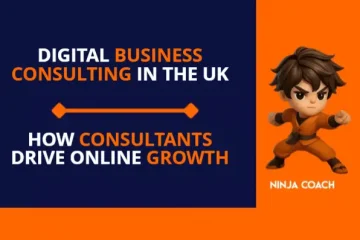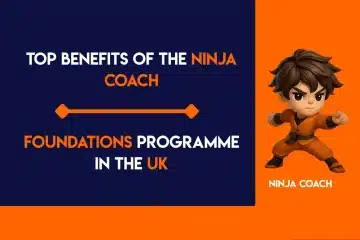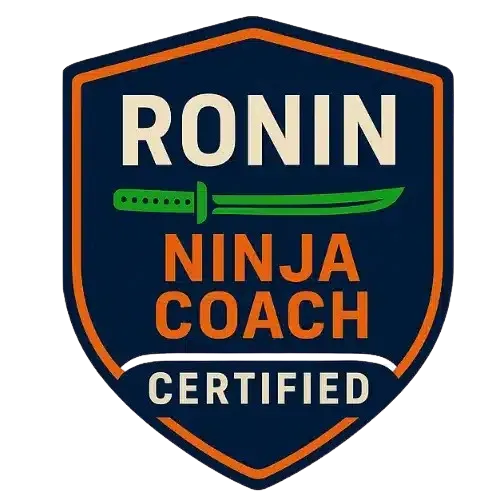
Top Business Teaching Qualifications & Courses in the UK for 2026
Introduction
If you’re looking to become a business teacher in the UK or enhance your credentials for 2026 and beyond, now is the perfect time to explore the right qualifications and courses. The role of a business teacher is evolving rapidly with changing curricula, digital tools, and new demands from employers. In this guide, we’ll walk you through the top qualifications, what to look for in courses, how to choose the best path for your career, and highlight some excellent programmes that can help you stand out.
Why Business Teaching Qualifications Matter in 2026
In the UK’s education landscape, being a great teacher doesn’t just mean knowing your subject. Schools, colleges, and independent training providers expect business teachers to:
- Deliver real-world relevance and updated business knowledge
- Use digital tools and hybrid teaching methods
- Engage students with practical application, not just theory
- Evidence of continuous professional development (CPD)
With the right qualification, you enhance your credibility, improve your job prospects, and ensure you’re ready for 2026-focused teaching.
What to Look for in a Good Business Teaching Course
Before you pick a qualification, check that the programme:
- Has accreditation recognized by UK education providers
- Includes both teaching pedagogy and subject-specific content (business, finance, marketing)
- Offers up-to-date modules covering digital business, online tools, and current trends
- Provides practical experience, lesson planning, and assessment
- Offers flexible delivery (online, blended, or in-person) to fit your schedule
You’ll want a course that equips you with both teaching skills and business subject expertise.
Top Business Teaching Qualifications & Courses in the UK for 2026
Here are some standout programmes you might explore:
1. Level 5 Certificate in Teaching Business & Management
Offered by awarding bodies such as the Institute of Leadership & Management (ILM) or similar UK-based providers, this qualification gives you the foundations of teaching business subjects in colleges or training providers. It involves teaching methodologies, business theory, and practical teaching hours.
2. Level 3 Award in Education & Training (AET)
A widely accepted starting point if you’re new to teaching in the UK. It gives you the “teaching” framework and can be a stepping-stone into specialist business teaching roles.
3. Diplomas in Business Education or Business & Management
These are subject-specific qualifications that enhance your business knowledge — useful if you want to teach modules such as entrepreneurship, digital marketing, or business strategy. Look for those updated for 2026’s digital context.
4. Specialist Short Courses or CPD for Business Teachers
Thanks to digital and hybrid teaching models, short courses focusing on “business teacher digital tools”, “blended delivery for business subjects”, or “AI in business education” are increasingly valuable. For example, a course might cover the use of AI tools in lesson planning or remote teaching techniques tailored for business subjects.
5. Certification Pathways from Specialist Coaching or Training Providers
If you are transitioning from business consulting, coaching, or training into education, look at programmes like the Ninja Coach Foundations, Sensei, or Ronin certifications. These may not be formal teaching certifications, but they enhance your credentials in business coaching and can complement your teaching portfolio. For instance:
- The Foundations program helps you build a coaching practice and develop business-relevant teaching skills.
- The Sensei Level is a 3-day intensive focused on coaching + AI tools.
- The Ronin Level is an advanced 10-day programme for high-level coaches and educators.
Including these in your teaching profile shows you are business-oriented, digitally literate, and ready for modern delivery.
How to Choose the Right Path for You
Here are some questions to ask yourself:
- Are you aiming for a role in schools/colleges or in private training companies?
- Do you already have business industry experience or teaching experience?
- Would you prefer full-time, part-time, or online study?
- Are you comfortable with digital teaching tools and hybrid delivery?
- Do you plan to teach general business subjects (finance, marketing, entrepreneurship) or niche topics (digital business, AI, sustainability)?
Your answers will help you choose between formal teaching certifications or specialist business teacher training.
Benefits of Investing in the Right Course
- Boost your employability and salary potential
- Demonstrate to employers you’re qualified and up-to-date
- Gain confidence in designing and delivering business programmes
- Use modern tools and methods that engage 2026’s learners
- Ensure your lessons remain relevant in a changing economy
The Future of Business Teaching in the UK
By 2026, business subjects will continue shifting:
- Greater emphasis on digital business and entrepreneurship
- Use of AI tools in classroom delivery and assessment
- Hybrid learning models (in-person + online)
- Real-world project-based learning
- Demand for teachers who can link education to business outcomes
Because of this, choosing a course that reflects future trends gives you an edge.
FAQs
Q1: Do I need a teaching degree to become a business teacher in the UK?
A: Not always. While many schools prefer QTS (Qualified Teacher Status), colleges and private training providers often accept business-specific teaching qualifications like AET or Level 5 certificates.
Q2: Can industry experience count towards business teaching qualifications?
A: Yes. If you’ve worked in business, this experience is valuable. Many courses recognize prior experience and focus on pedagogy and subject expertise.
Q3: How long does it take to qualify as a business teacher?
A: It depends on the pathway. Short courses (like AET) may take weeks, while full‐time Level 5 or diploma programmes could take months. Specialist certifications can be completed in days.
Q4: What salary can business teachers expect in the UK in 2026?
A: Salaries vary depending on role and institution. For example, college lecturers may earn £30k–£45k, while freelance trainers or niche educators can earn significantly more depending on clients and specialization.
Q5: Will digital teaching skills matter for business teachers in 2026?
A: Absolutely. Teachers who can deliver hybrid lessons, use AI tools, and engage digitally will be much more in demand across the UK education and training sectors.
Conclusion
Choosing the right business teaching qualifications and courses in the UK for 2026 can position you for a rewarding and future-proof career. Whether you’re just starting or looking to upgrade your credentials, focus on programmes that cover both teaching methodology and modern business subject matter. Combine that with practical tools, digital skills, and strong credentials, and you’ll be ready to teach business in the UK confidently now and into 2026.













